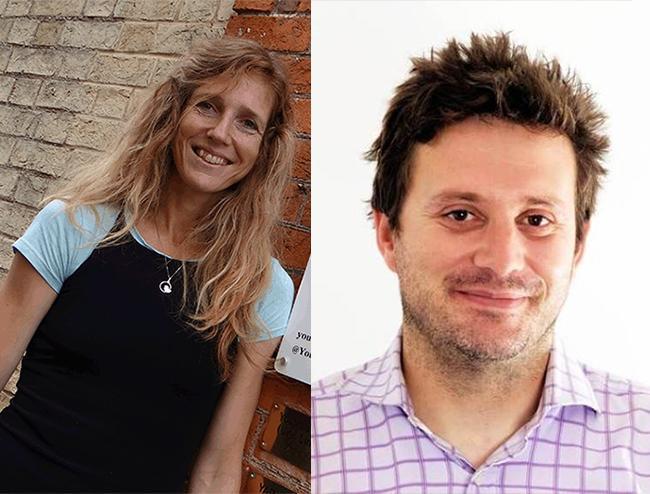‘How do we move from the predictable to the transformational? The importance of mindset for staff and young people’.

It seems that the environment for young people is becoming increasingly complex. In order to best prepare for a complex world it is essential that we invest in educating or training our young people from multiple perspectives. Traditionally our sector has focussed on the wider systems and structures necessary to impart the right skills and knowledge. However perhaps this has created short-sightedness as little is invested in the mind set needed to ‘succeed’ or indeed the culture within which successful educating/training can best take place.
Taking an integrated approach:
Ken Wilber (2000), psychologist, philosopher and sociologist developed a framework which emphasised the importance of instigating change from multiple perspectives to ensure that it is fully integrated and sustainable. Without getting overly theoretical the key areas emphasised by Wilber are: change for the collective as well as the individual, change for the internal world as well as the external. Many education/employment organisations tend to focus (whether collectively or individually) on the external world: the behaviours and skills needed to succeed/attain/gain employment. Few get to the heart of the attitudinal or mind set change that is necessary to gain and sustain positive outcomes, to actually see oneself as successful and deserving of aspiration and a flourishing future.
Once we have accepted the principle that both sides of the coin are essential, it then gets even more interesting. If we expect our young people to do some soul-searching and discover the limitations ingrained in their thinking patterns and belief systems, then what do we as professionals working for success in this sector need to do to facilitate that? Perhaps we need to start with a willingness to discover our own limiting thoughts, our own resignation or lack of aspiration, not an easy task but data suggests that the pay off could be significant.
Working with the mind set of staff:
We believe that professional staff in our industry can (often unwittingly) be part of the problem in not supporting young people – particularly those most at risk – effectively enough. For we too often bring our own judgmental views on young people and their challenges to bear before we meet them for the first time. This will place a limit on the difference we can make with them before we even begin our work together. Youth at Risk’s Chief Operating Officer, Ellie Garraway, describes this as a ‘Unconscious Bias’. This is a subtle but pervasive problem, a blindspot, which means it is impossible for staff to see their own bias yet it shapes actions constantly. In this profession more than most we all need the opportunity to confront our limiting mindsets, our own blindspots. So much training focuses on the skills to do the job, but little is about the ‘being’ or the mindset to be effective and yet this has a huge capability to transform outcomes and deliver a more integrated approach. This is especially important when working with young people who feel increasingly marginalised as often they are the most challenging to deal with and – sadly – the easiest to give up on.
How do we change our mind set?
It takes time to alter ingrained beliefs, but by raising awareness we create new choices when it comes to our actions: what we say and do. Listening is key to this, continually challenge ourselves to be present to what is being said by the young person we are working with. Too often we pay more attention to our judgements about what is being said or we are just waiting for the opportunity to give our advice or solution – instead, it is often more effective to enable the young person to find their own way. There are times when being listened to by someone who is fully present is enough to begin this process. If, as professionals, we are able to recognise that we have to challenge our own attitudes and demonstrate some process of self-reflection for ourselves to maximise the potential of young people, we begin to see ourselves and others from multiple perspectives. When we question our assumptions and the ingrained beliefs that sit behind them, we become open to discovering our limitations and are subsequently more able to work with the limitations of others. It takes a willingness to be honest with ourselves – but perhaps the courage to take on this self-exploration is essential to enabling provision of the most effective support for marginalised young people
How does it change outcomes?
Once we, as professionals or service providers, rid ourselves of the limiting conversations which hold back our ability to make a difference, our approach becomes more integrated, it doesn’t just teach skills, it empowers young people to become ‘decision makers, not just decision takers’ themselves. We are more willing to see them as a source of potential or talent and less likely to get stuck in viewing them as problems or deficits, or someone that needs fixing. When, as is natural, our own limiting beliefs get in the way: ‘I’m not making a difference,’ ‘they’ll never change’, ‘they won’t listen to me’, we then need our own support mechanisms (supervision, coaching, peer support, reflective practice) to enable us to move past these limitations and get back into our integrated perspective. In this way we can develop a more rigorous practice, reminding ourselves that our job is to drop the judgements and listen, when we do we are far more likely to create the transformation that is needed in today’s climate to support young people into positive outcomes.
Ellie Garraway, Chief Operating Officer, Youth at Risk and Mark Sargeant, Director of Business Development, Partnerships & Marketing, Prevista












Responses